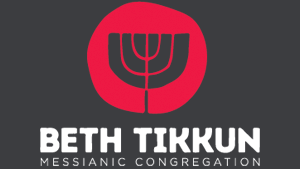Haf. Bo (Jeremiah 46:13-28)
Join Beth Tikkun as we continue our study of the Haftarah portions for the 2013-14 Torah cycle. In this study we consider the animal imagery used throughout the Torah portion, the Haftarah portion, and other related passages of Scripture. We ask why God createed the animal kingdom and provide some insights. Finally, we look into what it means to truly be a human being.
Podcast: Play in new window | Download
Subscribe: Google Podcasts | Stitcher | TuneIn | RSS



2 Comments
by john guichard
On April 25, 2014
Acts 15:20-21 & 29 in the ESV translation say only to abstain from food sacrificed to idols, from that which is strangled and from the blood. Is it different in other translations as you seem to be suggesting that all the food laws were advocated to the Gentiles? What of Jesus words in Mark 7:18-19?
I’m asking genuinely because if I have been going against His will I must know so I can repent! All my life I have been taught the opposite. But perhaps not by God…
Please, you have my email address, I ask that you copy paste a copy of your answer to me, because I only found your answer last time by chance.
Also the offer, of my house, my families love and a kosher meal is still open to you if you make that trip to teach in Pilgrims Hall UK.
Grace and peace be always with you in Yeshua our Messiah.
John.
by L. Grant Luton
On April 27, 2014
John,
Thank you for your email and your kind words concerning the teachings. They were a great encouragement to me! Thank you.
First, let’s start with the most literal translation of the pertinent parts of Acts 15:20-21 “…to be abstaining from ceremonial pollution with idols, and fornication, and what is strangled, and blood.” And verse 29 — “…to be abstaining from idol sacrifices, and blood, and what is strangled, and fornication…”
Note that there are some differences between the two passages. This tells me that the instructions that were being given to the Gentile converts were so basic and well understood by both the Apostles and the ones to whom they were writing that the wording was not all that critical. The message would have been clear to them regardless. However, it is not so clear to modern believers who have been raised in a tradition that discredits the commandments of the Torah. So here, basically, is what is being said:
A) Abstain from sexual impurity. [This requires no commentary.]
B) Abstain from anything having to do with idols. [And not just meat sacrificed to idols.]
C) Abstain from biblically unkosher eating. [The Torah’s kosher laws are summarized by the instructions to avoid ‘what is strangled’ and to avoid ‘blood’.]
Now let’s take a closer look at that last part. The Torah commands us to avoid any meat that is ‘treif’, which literally means ‘torn’ (Lev.22:8, for example). ‘Treif’ meat originally meant any kosher animal that was killed by another animal instead of purposeful slaughter by a butcher. But over time, ‘treif’ became a catch-all word for any meat that did not pass the Torah test for kosher. In Nahum 2:12 the words ‘treif’ and ‘strangled’ are used interchangeably — “The lion tore enough for his cubs and strangled prey for his lionesses…” My opinion is that Acts uses the word ‘strangled’ as a stand-in for ‘treif’ (torn). After all, when an animal, such as a lion, attacks another animal for food, it kills that animal by means of strangulation by clamping down on the throat of its prey. This is strangulation. Again, since Acts was written in Greek it seems that the author chose ‘strangled’ as a stand-in word for the Hebrew ‘treif’
But there is a second part to the Torah’s food laws that have nothing to do with the kind of meat being eaten. This addendum has to do with abstinence from consuming blood or fat (Lev.3:17), even if the blood or fat is from a kosher animal that has been properly slaughtered. Thus the instructions concerning abstinence from “blood” and “what is strangled” conveniently summarize the biblical food laws.
Here is another thing that is important to understand when reading Acts 15. According to the rabbis, there are three things that earmark a Jew’s holiness, which happen to be the same three that are mentioned here in Acts 15. Here is a quote from Artscroll’s commentary on Leviticus (p.262): “Although, as we have seen, the Jew’s mission of holiness encompasses his entire being and all forms of his behavior, the Torah uses the term holiness specifically with regard to three areas: idolatry, sexual immorality, and forbidden foods. One who curbs himself from forbidden activities in those areas is on the way to holiness; but one who indulges in those vices is ‘tamei’, contaminated.”
This orthodox Jewish commentary is exactly in alignment with what I see in James’ instructions in Acts.
One final word on kosher. I use the term ‘biblical kosher’ because rabbinic kosher is something that goes far beyond the instructions of the Torah. I believe that the biblical kosher laws are incumbent upon all believers, Jew or Gentile. But ‘rabbinic kosher’ is an option, not a commandment.
Thanks again, John, for your question and I hope this brief explanation helps.
Shalom,
Grant L.